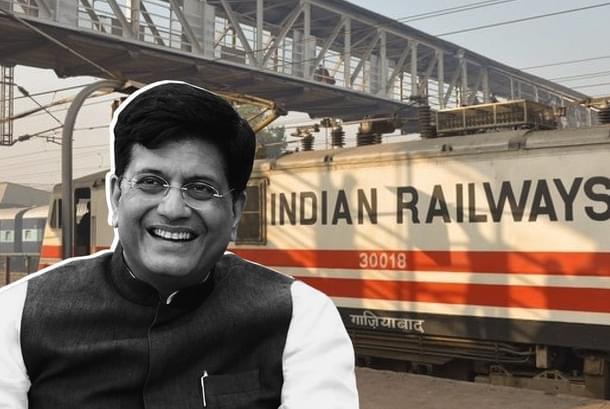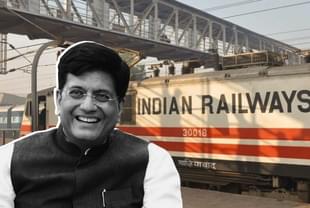News Brief
Making The Brakes In India: Railways To Adopt Homegrown Technology Called 'TCAS' To Prevent Accidents
Arun Kumar Das
Dec 27, 2020, 12:02 PM | Updated 12:02 PM IST
Save & read from anywhere!
Bookmark stories for easy access on any device or the Swarajya app.


Shifting strategy, Indian Railways will now go in for indigenously developed accident prevention systems instead of costlier European technology to ensure passenger safety.
Leading from the front in the Atmanirbhar Bharat campaign, the national transporter has now decided to install Train Collision Avoidance System (TCAS), an indigenously built technology, while discarding the earlier plan for ETCS Level-2 in the rail network.
TCAS would be installed in the Golden Quadrilateral and Golden Diagonal networks as it is a successful model with state-of-the-art technology, Chairman Railway Board VK Yadav said in a presser here.
TCAS is an Automatic Train Protection (ATP) system and has been developed by the Railways along with manufacturers from within the country.
It is said to have capability in preventing train accidents caused due to ‘Signal Passed At Danger’ (SPAD) by train, disobedience of train speed restrictions etc. by automatic application of brakes, should the train driver fail to do so.
The system will also prevent other collision-like scenarios even in case of non-interlocked or non-signalled territory and provide assistance to loco pilots by real-time display of signalling related information inside the cabin.
While the TCAS costs about Rs 1 lakh per km, the European system is many times costlier.
TCAS, a cost-effective solution, has successfully been commissioned for a distance of 21.5 km between Umri and Sivungaon stations on the Mudkhed-Secunderabad section of Hyderabad division.
Following successful implementation of the system, the Railways has advised all zones to implement TCAS projects.
Besides, trials of the indigenously designed system are being taken up in association with Railway Designs and Standards Organisation (RDSO), between Lingampalli-Vikarabad-Wadi and Vikarabad-Bidar sections.
The homegrown train protection system would be implemented on a 1,200 km route between Manmad-Nanded-Secunderabad-Dhone-Guntakal and Bidar-Parli-Parbhani sections also.
Earlier, RailTel had floated a tender for installing the European Train Control System Level 2 (ETCS L2) on 650 km as a Rs 1500 crore pilot project comprising Jhansi – Bina in North Central Zone, Yerraguntla – Renigunta in South Central Zone, Vizianagaram – Palasa in East Coast Zone, and Nagpur – Budnera in Central Zone.
However, with focus on Atma Nirbhar Bharat and Make-in-India, the tender is likely to be scrapped.
As of now, many locomotives are fitted with TCAS equipment.
Arun Kumar Das is a senior journalist covering railways. He can be contacted at akdas2005@gmail.com.





